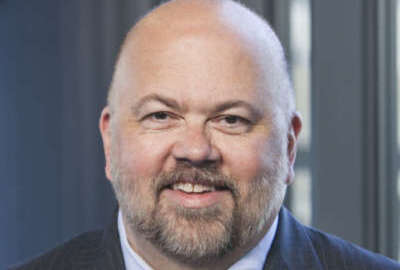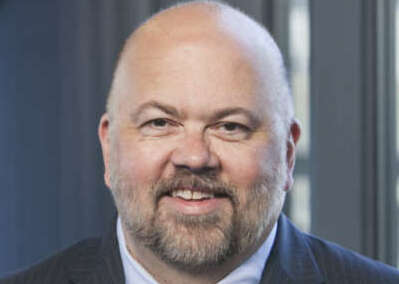
It’s time for a Cabinet-level management department
While all of the focus on the OPM-GSA merger has been on OPM’s shortcomings, it is safe to say that the federal government as a whole has not covered itself with...
This column was originally published on Jeff Neal’s blog, ChiefHRO.com, and was republished here with permission from the author.
Now that Congress has made it clear that moving the Office of Personnel Management into the General Services Administration and the Office of Management and Budget is not happening, it is time to look at some of the government’s management issues and propose a solution.
While all of the focus on the OPM proposal was on OPM’s shortcomings, it is safe to say that the federal government as a whole has not covered itself with glory with respect to management issues.
They buy the same systems over and over, even with efforts by agencies to curb buying, Human Resources practices are often stuck in the 1980s, agencies often cannot get a clean opinion on their books, many government facilities are outdated and poorly maintained, technology programs still fail at alarmingly high numbers, and on and on.
In recent years GSA has focused on shared services in an attempt to reduce costs and drive efficiencies, but “shared services” is still a four-letter word in most agencies. Even getting an Enterprise approach to such services within a single Department or Agency is often asking too much. The result is inefficient and overpriced services that do not deliver the support needed and drain resources away from agency missions. Rather than operate as an organization with 2 million employees, the federal government operates as a collection of large, medium, small and micro agencies.
The first argument I hear when I talk about a Management Department is that we already have one. After all, OMB has “management” as its middle name. The reality is that OMB is really the Office of Budget, and maybe, from time to time and if they make enough noise, Management. Management has a seat at the table in OMB, but that seat is a high chair. Part of the problem with moving HR policy from OPM to OMB was that people programs were going to be given at seat at the kids’ table.
Related Stories

OPM policy changes may improve hiring, but only if agencies do not find ways to maintain the status quo

Reskilling and upskilling offer opportunities and challenges for agencies and employees
Provide answers to all of those questions and proponents of the status quo will throw out a hundred more. What I do not hear from those who support the status quo is that they are happy with the status quo.
Federal agencies spend too much on HR systems and services, but complain about what they get for their money. They often cannot get a clean opinion on their books, or they complain that the financial management practices and systems are not up to the challenges they face. They complain that they spend too much on facilities, but are not happy with them. They complain about taking money from the mission for “overhead” services, but balk when you offer them a less costly option that could work better.
I believe the real solution is a cabinet-level Executive Department focused on all aspects of government management. Such a department could bring needed focus to management issues and, over a period of several years, begin consolidating systems, services and policies in a way that relieves burdens on the other departments and agencies and allows them to devote more of their resources directly to their missions. Here is how I think it could look:
- Cabinet level
- Designated as chief management officer of the U.S. and chair of the President’s Management Council
- Secretary appointed for a 5-year term and removable by the president only for cause
- 6 bureaus, each with a Senate-confirmed undersecretary
- Talent management
- Procurement
- Facilities
- Technology
- Finance
- Accountability and merit systems protection
- 6 bureaus, each with a Senate-confirmed undersecretary
-
- Absorb all of:
- OPM
- GSA
- Management side of OMB
- OMB’s Office of Federal Financial Management
- Merit Systems Protection Board
- Federal Labor Relations Authority
- Federal Mediation and Conciliation Service
- Office of Special Counsel
- Office of Government Ethics
- Absorb all of:
Every one of those moves is likely to cause someone to howl in protest, but the changes would bring the government’s various management agencies under one roof. Many of the problems the government faces cannot be solved by any of the existing agencies without significant interagency cooperation. This approach would jump start the interagency process by at least putting the management agencies together with a common leader who can drive change.
More Commentary
If we really want to protect a merit-based career civil service, we need Human Resources policies that work. We need modern facilities and technology. We need to spend money wisely and stop duplicating services and systems over and over. I would go a step farther, and give the Undersecretary for Accountability and Merit Systems Protection independent enforcement authority. If s/he could fire a manager who commits a prohibited personnel practice, or anyone who egregiously violates the Hatch Act, we would see more interest in complying with the law.
It certainly would not be easy, but a real focus on Management could lead to changes that everyone, including the most conservative and the most progressive wings of both parties, could support. Would either get everything they want? No. But what they might get would be a big improvement over what we have today.
Copyright © 2025 Federal News Network. All rights reserved. This website is not intended for users located within the European Economic Area.






